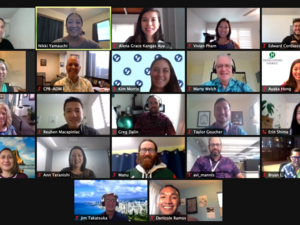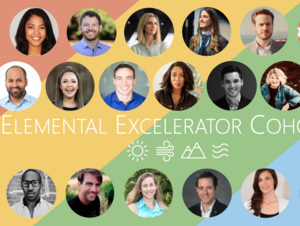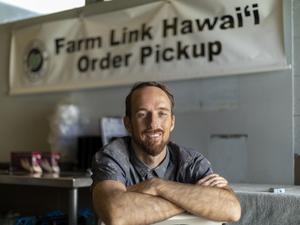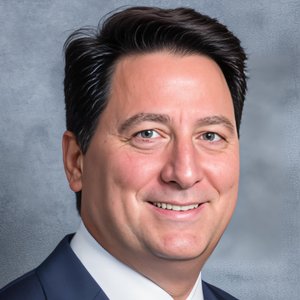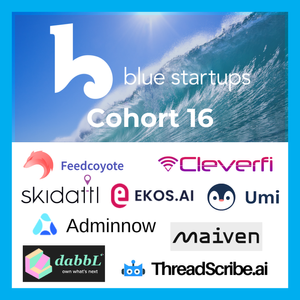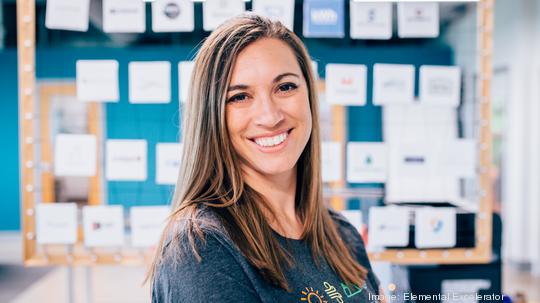
Hawaii-based cleantech accelerator Elemental Excelerator followed up on recent international recognition by unveiling a roadmap for how it will affect change in the climate sector for the next five years.
Elemental, which promotes equity for traditionally underrepresented groups in clean energy, invests in 15-20 startup companies in its annual cohorts. For its efforts, it was ranked i the No. 8 spot on Climate50’s top 50 most recognized investors in the worldwide clean energy transition.
It has invested in 117 companies since 2009, focusing on impact in five areas: energy, agriculture, water, mobility, and circular economy. The nonprofit also received some grant money in a separate award in March from the Wells Fargo Incubation Innovator.
CEO Dawn Lippert has given plenty of thought to the opportunities presented by what she sees as a rare alignment of climate and equity goals in the business, political, and community sectors. She pointed to Farm Link Hawaii as an example of a successful business innovator.
“The essence of the five-year strategy is that now is an amazing time, all the stars are aligned, to make really big waves in climate action and climate technology, and community impact related to climate — in particular around green jobs,” Lippert told Pacific Business News.
The three pillars of Elemental’s plan are: “invest in startup success, partner deeply, and inspire action.”
Lippert, discussed Elemental's future plans, as well as next steps in the world of climate change, in an interview with PBN.
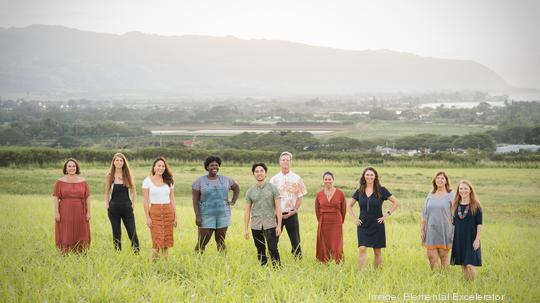
What does the recent attention do for Elemental's goals?
“This feels like such an honor because we’re trying to help solve a global problem with climate, and do it from Hawaii, and California. We were born in Hawaii as an organization. It’s always nice to realize you’re working on a global stage from Hawaii, and [to receive that award] is really good validation.
We want to be a lighthouse that attracts amazing entrepreneurs and talent for our organization, and interns, and partners to work with our companies. These kind of things are really helpful when your name starts popping up in all these different places.
Can you elaborate on the timing of the five-year plan?
Technology has come so far; costs have come down. Renewable energy is the most affordable kind of energy. On the market side, we’ve seen 1,400 corporations are committed to net-zero carbon goals [including] some of the biggest ones in the world, like Apple, Amazon, and Microsoft.
On the policy side, now we have everything aligned at the city, state, and national level. There’s just a lot of opportunity in the next five years to make a lot of progress and ensure we have a resilient planet to live on that’s affordable and works for everyone.
I started Elemental a dozen years ago now. And over the last dozen years, none of these things have been aligned as they are now, in my experience. The other exciting thing is, new people are coming into this space, and that’s awesome. The more the better; we need everyone.
What is the biggest challenge for the climate sector?
I think this is so much about jobs, and really putting people to work.
One thing I’ve been understanding more in the last couple years is, every job can be a climate job. It’s not [just] that the solar installers are in the climate sector. You have a climate job. The building manager you work with has a climate job. The landscaper has a climate job, because the decisions they make impact climate. Every single person, all the decisions they make, there is some element of this in their work, in their lives.
So how do we as a society empower people, ensure that they’re part of this transition, and owning it and benefiting from it? That is an incredibly exciting opportunity, and it’s also a challenge. But it’s a good kind of challenge.
How do you expand your reach?
This year we had 1,400 applications for internships, for [about] 20 spots. People are wanting to be a part of this, want to work in climate solutions, want a job that will be a good-paying job that will support their families. That’s so exciting.
Going forward we’re thinking about, beyond the 20 interns we fund, what can we do with the rest of the 1,400? The rest of the iceberg — are there ways we can engage with them to move the whole field forward? The same thing for the companies we’ve [funded]. We’ve looked at 5,000 companies the last few years, and we’ve funded 100. What about all those other ones?
That’s the essence of our strategy — going from a really deep one-to-one model to a one-to-many model.
What does attempting to do this from Hawaii mean to you?
Hawaii is such a leader in renewable energy and energy transition, and electrification of transportation. There’s a lot to figure out. These are complex things.
But it’s exciting to see Hawaii lead the transition and ultimately it will enable us to have a more affordable and resilient island, which are two things I’ve been thinking a lot about, especially with the floods we’ve had here [last month], and in the wake of Covid. If we can leverage this to create more affordability, more resilience and more opportunities for our youth to get to great careers, then we will have succeeded.
